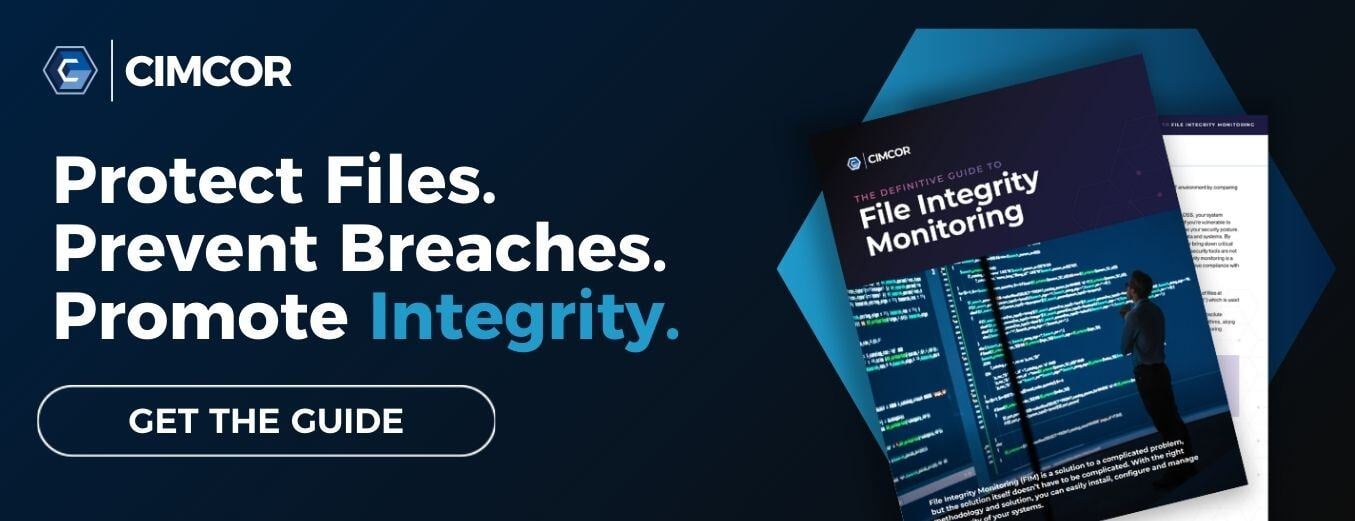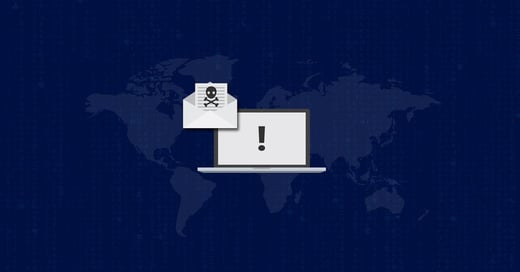Globally, organizations collectively spend $75.4 billion on information security per year. Gartner research notes the key area of investment for organizations is "emerging technologies," which include file integrity monitoring, cloud security tools, threat intelligence, and more. When coupled with effective policies and training programs, technology can be a powerful tool for mitigating risk in enterprises.
File integrity monitoring software is an increasingly common choice for organizations of all sizes for both PCI-DSS compliance and detection of threats such as zero-day malware. There are a number of open-source file integrity monitoring tools which can be used for monitoring critical files. In this blog, we'll take a look at FIM tools, which rely on assessments of the status of a critical file against your organization's baseline. You'll also learn how CimTrak's file integrity software stacks up against open-source solutions and which is right for your needs.
Why Do Organizations Consider Open Source File Integrity Monitoring?
Per SANs, "A compromise of a system is often accompanied by alteration of files on the system." Both open-source and commercial file integrity monitoring solutions work by assessing changes to your files' criteria and characteristics against the files' original statuses. If the files' contents, size, or other attributes are changed, the program will generate an alert.
There are several open-source file integrity monitoring solutions available. Depending on the specific option you are considering, it may include:
- Coverage for Windows, Linux and Unix, and other OS
- Extensible architecture
- File extraction capabilities
- Community-based support
Expert reviews of open file integrity monitoring solutions indicate that each solution carries unique pros and cons. Common issues that organizations may discover when researching open source options may include:
- "Rigid" or complex installation processes
- Steep learning curve
- Varying flexibility in scan frequency
- Simultaneous installation of other unwanted software (like Cygwin)
- Inconsistent support for Windows Registry monitoring
- Lack of built-in support for PCI compliance
Disadvantages of Open Source FIM Software
Many IT pros are familiar with the common risks associated with open source solutions. These can include inconsistent documentation since files are typically end-user generated; product support and updates that are inconsistent or discontinued little-to-no notice. Also, depending on the complexity of your network infrastructure and staff, the cost savings associated with open source products may not make up for the added complexity and learning curve of an open source product.
CimTrak vs. Open Source File Integrity Monitoring Options
CimTrak is a PCI-compliant proprietary alternative for change detection via file integrity monitoring and configuration management. Through options for real-time change detection and remediation, CimTrak exceeds PCI requirements.
For many organizations, the risks of being found non-compliant with PCI requirements outweigh the cost savings potential of open source file integrity monitoring. CimTrak offers built-in support for PCI compliance, as well as unique ease-of-use and simple configuration to keep your costs low. CimTrak is also unique among proprietary file integrity monitoring solutions in that it offers administrative users the ability to completely stop changes in real-time, as opposed to just identifying potential breaches and other issues.
Check out how CimTrak stacks up to many open source solutions on a feature-by-feature basis:
| Feature | Open Source* | CimTrak |
| Real-time, agent-based monitoring | No | Yes |
| Coverage for Windows, Linux, and Unix | No | Yes |
| Complete infrastructure monitoring | No | Yes |
| Windows registry monitoring | No | Yes |
| Monitors file content and attributes | Yes | Yes |
| Low cost | Yes | Yes |
| Ease of use | No | Yes |
| Centrally-Managed | No | Yes |
| File change remediation | No | Yes |
*While open source solutions can vary significantly, these answers are meant to reflect the majority of open source solutions, not exceptions to the norm.
Purchasing comprehensive, agent-based file integrity monitoring can provide organizations with benefits beyond PCI-DSS compliance. By implementing real-time monitoring, you can gain the ability to detect negative changes and threats in real-time, which can prevent malware from entering your system.
If the risks of open source solutions are too high, consider CimTrak as an affordable alternative. CimTrak provides incredible protection, with the added benefits of ease of use and file change remediation.
To learn more about CimTrak, click here or download our Definitive Guide to File Integrity Monitoring today.
Tags:
Cybersecurity
May 5, 2016




